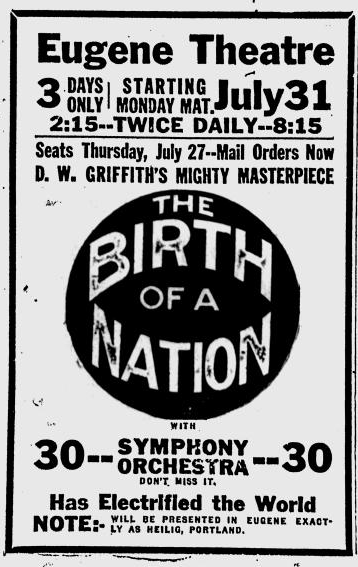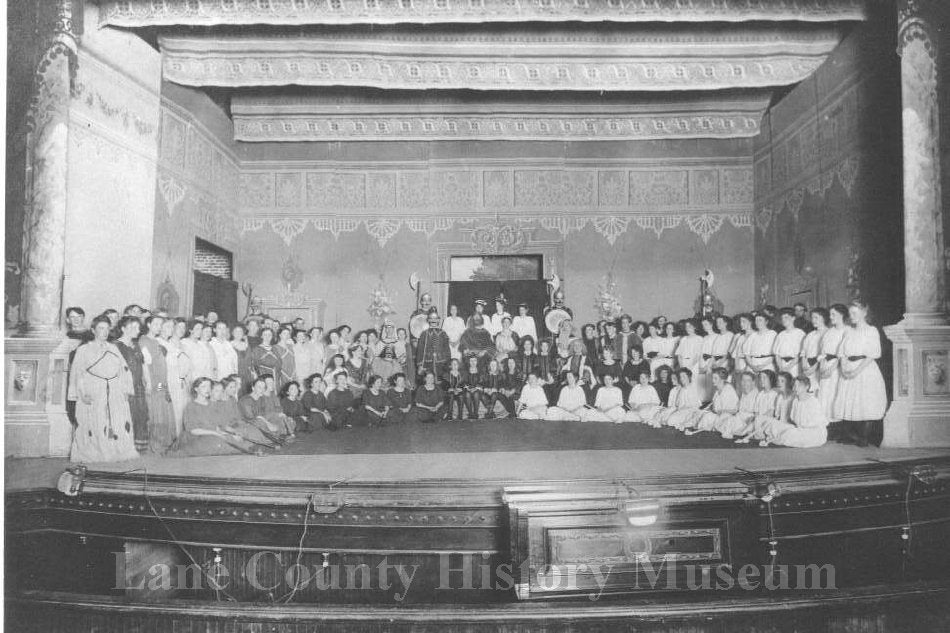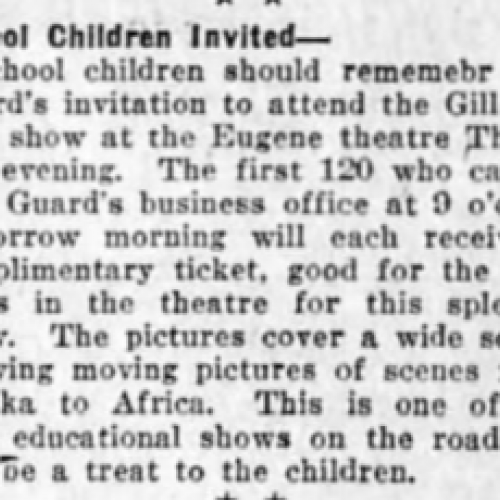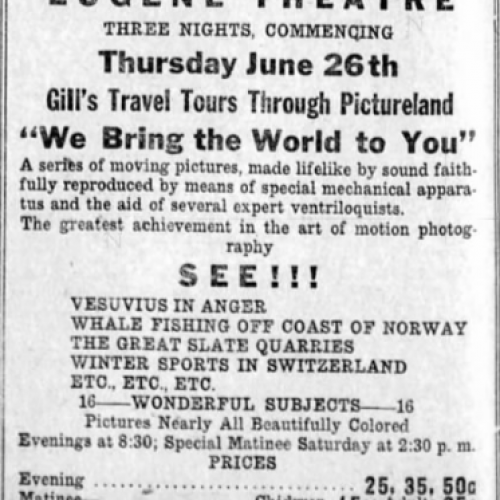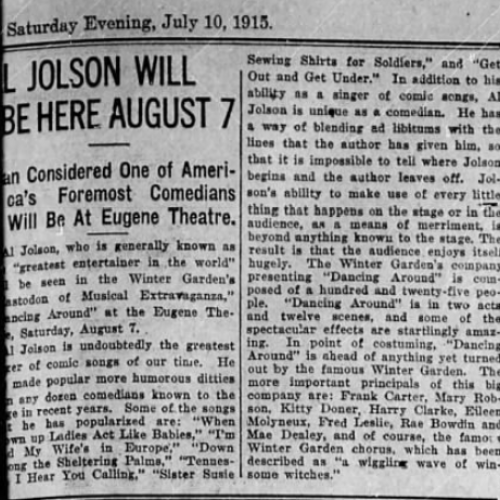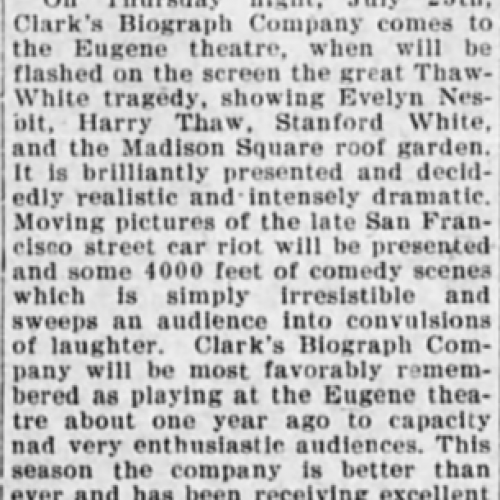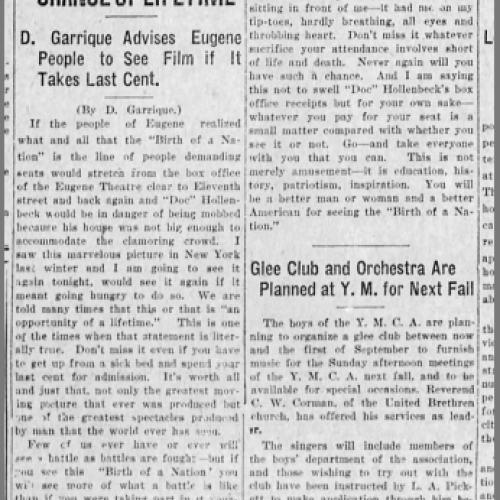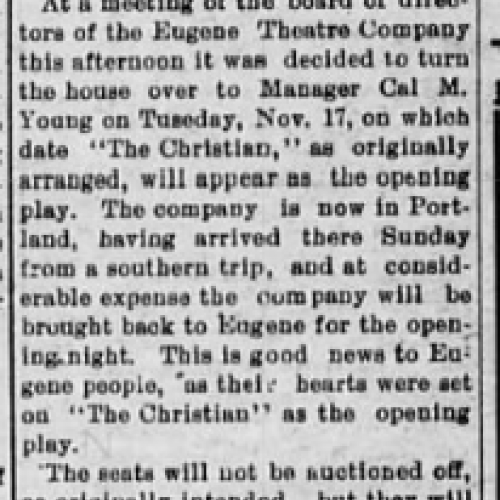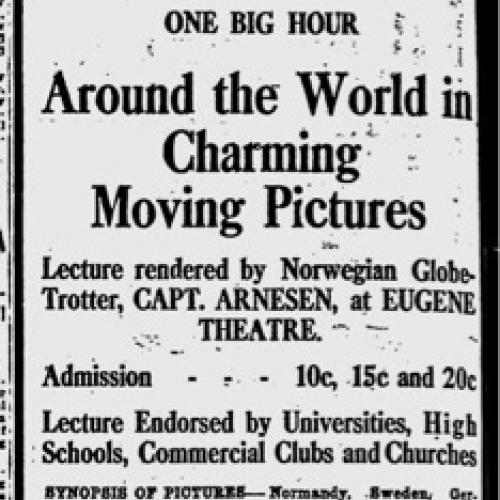The Eugene Theatre was located at 490 Willamette St. (the same address became 636 Willamette when the street numbering system changed in 1913). It sat roughly in the same location as the current Hult Center for the Performing Arts.
The Eugene Theatre was built as an opera house at the turn of the 20th century for a provincial city of barely more than 4,000 people. Yet it managed to thrive as a showcase for big touring plays, musicals, and vaudeville acts, and, increasingly in the 1910s, moving picture shows.
In the first two decades of its heyday, however, the Eugene was primarily a live performance venue and some of the biggest names in theater appeared on its grand stage, including Al Jolson in 1915.
The Eugene did show movies as early as 1907 when manager George H. Smith booked a night of Biograph shorts provided by a traveling movie exhibitor. Tickets for this show were definitely not nickelodeon prices: 15¢ and 25¢. Movies became a more frequent part of the programming after 1913, and by 1915 they were a regular feature. Many of the films screened conformed to the same “high-class” tone of the theater, including travel pictures and other “educational” films. The Eugene arranged with the Portland-based Pathé film exchange to show their features and newsreels, which were “known to be the very highest class” that could “please any audience.” Movie show prices remained a bit higher than the other theaters in town, 25-50¢ for an evening show in 1913, compared to 10-15¢ elsewhere.
The Eugene hosted the much-anticipated local premiere of Birth of a Nation in the summer of 1916. The theater’s manager “Doc” Hollenbeck ran daily newspaper ads for a month prior to attract patrons, promising a 30-piece live orchestra to accompany the silent film.
By the winter of 1917, the Eugene Theatre was advertising a weekly program with movies showing six days out of the week. The films included “Draft 258” (Metro Pictures), “Kill Joy” (Perfection), and “The Brand of Satan” (Peerless).
In the October 1922, new owners changed the name to the Heilig, and later converted it to a movies-only theater in 1926. It was demolished in 1973.
